Jeju Sets Its Sights on Evolving
World-Class Free Int'l City
Its inauguration as a special self-governing province accelerates its quest
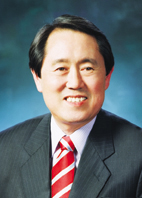 Jeju marked the first anniversary of its inauguration as a special self-governing province on July 1, 2008. KimTae-hwan, governor of Jeju Special Self-governing Province, touched on his provincial government's vision of evolving into a world-class free international city. The following are the excerpts of his interview Ed.
Jeju marked the first anniversary of its inauguration as a special self-governing province on July 1, 2008. KimTae-hwan, governor of Jeju Special Self-governing Province, touched on his provincial government's vision of evolving into a world-class free international city. The following are the excerpts of his interview Ed.
Question: Will you tell our readers about the achievements made in the past year since Jeju's distinction as a special self-governing province and the future direction in which your province will move forward?
Answer: Jeju has made numerous achievements in the year following its inauguration as a special self-governing province. First, the so-called 4 plus 1 Core Industries - tourism, medical, educational service, clean/primary industry, high-tech industry - our provincial government has strived to foster these areas and has seen their competitive edge dramatically improve.
Domestic and foreign investors'concern in Jeju has been on the surge. On top of advanced countries,
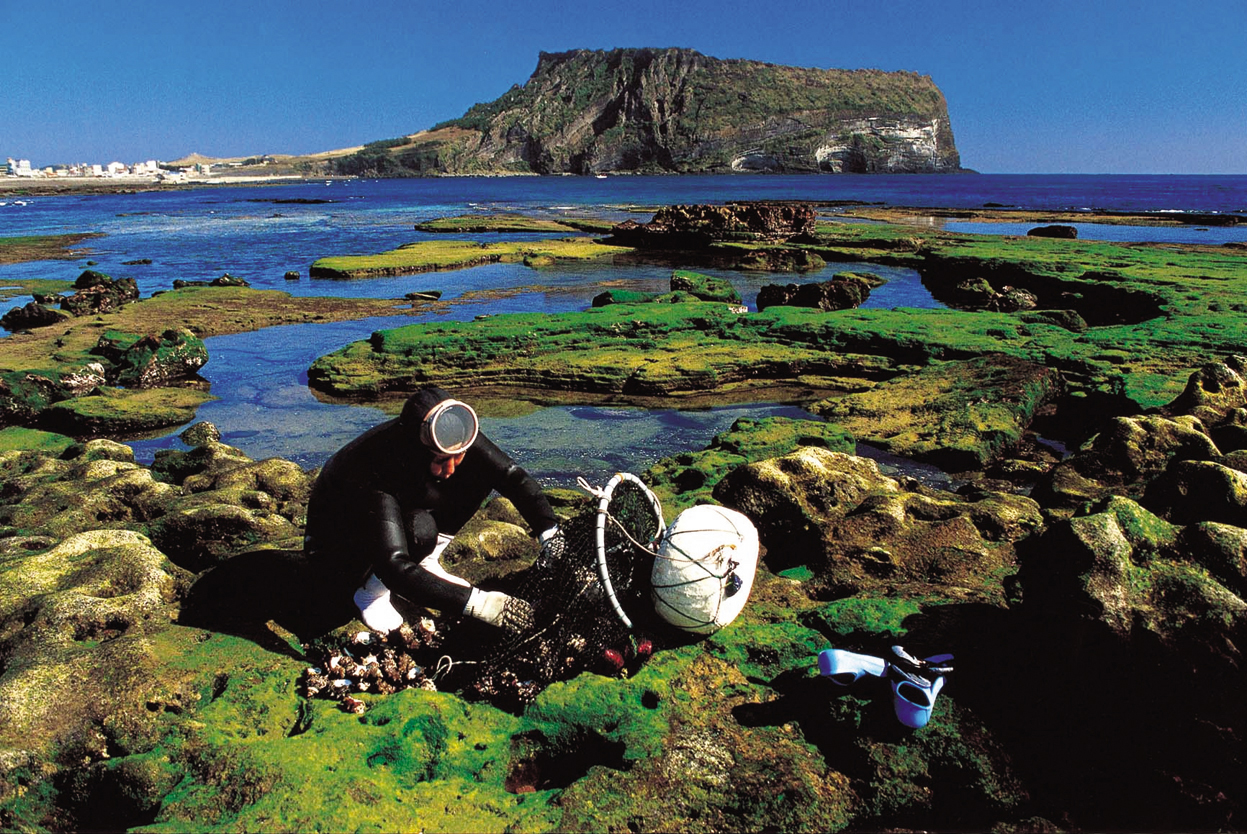 including the United States and Canada, and Qatar, one of the nations with deep oil dollar pockets, has shown interest. Investor concern has been soaring at an explosive pace compared to before and after Jeju's distinction of a special self-governing province .
including the United States and Canada, and Qatar, one of the nations with deep oil dollar pockets, has shown interest. Investor concern has been soaring at an explosive pace compared to before and after Jeju's distinction of a special self-governing province .
Construction of a large-scale town for exclusive use of English is being pushed together with the implementation of such mega-projects as an innovative city, cutting-edge science technology complex and private-sector investment projects. The second phase revision of the Act on Jeju Special Self-governing Province calls for expanding preferential benefits for the development of core industries. International direct flight routes are expected to be expanded under an open-sky policy, while new patterns of demand related to the permission of foreign hospitals and introduction of a medical treatment visa system are likely to be created.
The special self-governing provincial government is striving to readjust regulations and decrees to meet the province's characteristics in accordance with administrative power delegated from the central government, as such steps as the extended operational period of business vehicles and bus fare system according to section.
Newly institutionalized systems, including the autonomy of police and expanded residents'participation are expected to bear fruits in the years to come.
The reorganization of the administrative system with one province and four cities into a single metropolitan autonomous entity has entered a stage of stabilization, laying a foundation for making dramatic reforms designed to eliminate administrative inefficiency and duplication.
However, the special self-governing province system has been on the starting point of differentiating itself form other districts by improving institutional conditions. It takes time and requires continued efforts for reforms to develop Jeju Special Self-governing Province into a free international city. Restrictions on foreign educational institutions and hospitals as well as duty-free shops for Korea have been eased or exceptional privileges are offered in a bid to build a free international city, but they are not still enough to have international competitiveness.
The central government's steps to relegate administrative power to Jeju and relax restrictions are insufficient to meet the purpose of the introduction of the special self-governing scheme to set an example of an advanced autonomous city and develop the province into a free international city as a hub of national wealth.
Question:: What does your province do to develop Jeju into a world-class self-governing one?
A: Jeju has been growing to be the country's top tourist destination based on pristine natural wonders and indigenous traditions. We have a rich tourism infrastructure as Jeju volcanoes and caves have been put on the list of the World Natural Heritage.
However, Jeju's competitiveness still falls behind other international cities'in terms of taxes, price and accessibility.
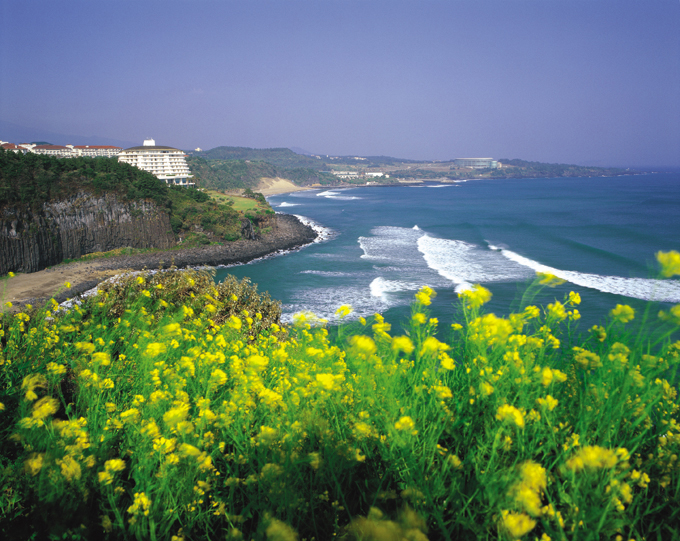 The prevailing equality theory over the whole of the country has been putting the brake on efforts to make the most of Jeju's own strengths.
The prevailing equality theory over the whole of the country has been putting the brake on efforts to make the most of Jeju's own strengths.
Now that the inauguration of the special self-governing province has set the stage for a strategy of differentiating itself from other districts and rebuilding conditions for its own management, we are making efforts to successfully complete leading projects with an initial goal of developing Jeju as a representative vacation destination. Afterwards, Jeju Special Self-governing Province plans to explore projects that will have synergetic effects to maximize the so-called 4 Plus 1 core industries.
The provincial government is endeavoring to build up a business environment with a competitive edge on the world stage by revamping systems and relaxing restrictions step-by-step so that they can conform to global standards in terms of such areas as rationality, efficiency and transparency , given their coverage limited to Jeju.
It plans to develop educational programs designed to help Jeju residents nourish the capability to adapt to the openness and diversity of an era of globalization, while aggressively making the most of expanded functions of resident autonomy centers in order to instill residents with an awareness of democratic citizenship.
Jeju will nourish the education industry to help Koreans raise their foreign language proficiency as language barriers have emerged as one of the least business-friendly factors foreigners experience while doing business in Korea.
Question: Will you elaborate on Jeju'2011 goal and vision on the development of a free international city?
A: Jeju's inauguration as a special self-governing province is part of action plans to push the free international city development scheme on a continuous basis. Since legislation of the special act on Jeju Special Self-governing Province in 2002, projects for attracting foreign investments have been pushed in earnest. Since its elevation as the special self-governing province, Jeju has been stepping on the gas pedal to push projects on the construction of a free international city, including leading projects and 4+1 core industry projects. The first half phase of the scheme has already been completed and the second-half phase is to be accelerated from this year until 2011. .
If the scheme is completed in 2011, Jeju aims to transform itself into a human-, environment-, knowledge-oriented free international city with a pleasant and affluent environment.
Jeju will see its population rising from the current 540,000 to 620,000 in 2011, gross regional domestic product surging from 8.92 million won to 22.05 million won with the hope that the island will enter an era of $20.000 per capita national income and domestic and foreign visitors will surpass the 10 million mark.
Question: Daum Communications'relocation to Jeju signals the opening of a new chapter of ICT and BT industries, departing from the traditional industry of Jeju-grown and Hallabong tangerine products. Will you say about the current status of these emerging industries and expected benefits?
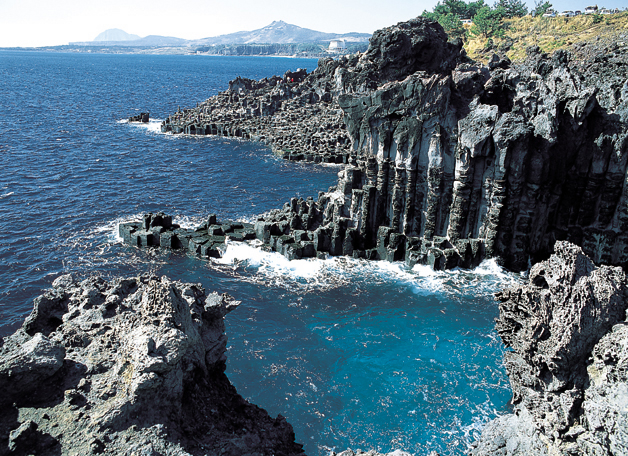 A: Our special self-governing provincial government is strategically developing the ICT and BT industries, taking into account geologically characteristics as part of its efforts to advance its limited industrial structure of tourism and primary industries and step up competitiveness.
A: Our special self-governing provincial government is strategically developing the ICT and BT industries, taking into account geologically characteristics as part of its efforts to advance its limited industrial structure of tourism and primary industries and step up competitiveness.
Following the relocation of such IT firms as Daum Communications and EMLSI in 2004, Jeju, known for optimal IT test-bed, is emerging as an advance base for the construction of high-tech science towns, venture promotion zones and venture support centers. The island is repositioning itself as one of Korea's representative IT clusters as it has implemented government testing projects like the designation of Jeju as an exemplary telematics city in 2004 and the subsequent launch of a taxi telematics pilot project.
We plan to establish strategies to build up ubiquitous infrastructure fitting the construction of a free international city, while making strenuous efforts to foster the IT industry through ICT infrastructure buildup and development of IT convergence technologies linked to the island's own industries.
A biological resources industrialization support center was established to cultivate the health/beauty/biological resources industries as the province's industrialized fields. In 2005, a cosmetic plant capable of producing 3 million bottles of skin, cream and perfume was set up to utilize the province's biological resources.
Jeju National University set up a food Good Manufacturing Practice factory at the TIC Center in 2005 to lay a foundation for producing health foods and beverage products. The university plans to dedicate a bio industry center and a biodiversity research center within 2007 to build up ground work for the development of the health/beauty/biological resources industries.
Jeju is seeking to develop function products made with seawater from lava.
A venture fund of 5 billion won was raised to provide financial and marketing support to promising SMEs suffering from financial woes.
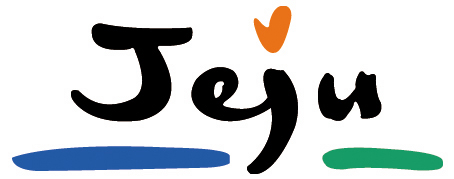 The provincial government plans to raise the fund to 20 billion won by 2010.
The provincial government plans to raise the fund to 20 billion won by 2010.
Jeju strives to foster the IT and BT industries as inter-industry convergence industries by grafting environment, primary and tertiary industries to advance the island's industry structure and invigorate the local economy and ease unemployment woes.
Question: Will you explain the "New Jeju Movement"Jeju is campaigning?
A: No doubt that Jeju's rebirth of the first special self-governing province in Korea's constitution history has laid dramatic groundwork for evolving a free international city.
Many advanced systems have been in place since the inauguration of the special self-governing province, but they have yet to bear fruit due to public officials'closed mindset, collective petitions based on regionalism and irrational practices, including unreasonable demands from investors.
The New Jeju Movement is an island wide social reform drive designed to eradicate obsolete practices in consciousness and institutional aspects and inject a new wind of reform into society of Jeju.
The movement under the catchphrase "If you change yourself, it will make Jeju afresh"calls for self-respect spirit for exploring Jeju's future on its own and taking responsibility; having an open-mined spirit for realizing an free international city with free flows of humans, products and capital; and co-existence spirit for realizing the Island of Peace by accepting diverse cultures and values and pursing co-existence and co-prosperity. The provincial government is implementing 12 tasks, including the construction of towns in the special self-governing province, specialization of residents'autonomy centers in an effort to realize three goals - construction of a self-sufficient district community, establishment of advanced social systems and cultivation of global citizens with cultural pluralism.
Officials'community has been joining in such campaigns as the "Drive for Eradicating Inside Enemies"and the one for improving officials'image while implementing such special self-governing province-type personnel systems as officials'three-out system, and special promotions and grade promotions.
On the civilian front, organizations and associations from several walks of life have organized a total of 400 discussion sessions, workshops and New Jeju Movement rallies. Eup, myeon and dong autonomous committees have been spearheading diverse activities and projects, including one for producing first-class yellow corbina and dried yellow corbina in Chuja Islet and the formation of an investment attraction delegation for utilizing idle pasture land.
Exemplary organizations and business have been presented with a plaque of certification each month to prod the private sector's participation in the New Jeju Movement on a voluntary basis. So far, 48 organizations and individuals have become certification winners.
Question: What's the topics and significance of the 4th Jeju Peace Forum?
A: The 4th Jeju Peace Forum was held at the Haevich Hotel & Resort on Jeju Island June 21-23 under the theme,
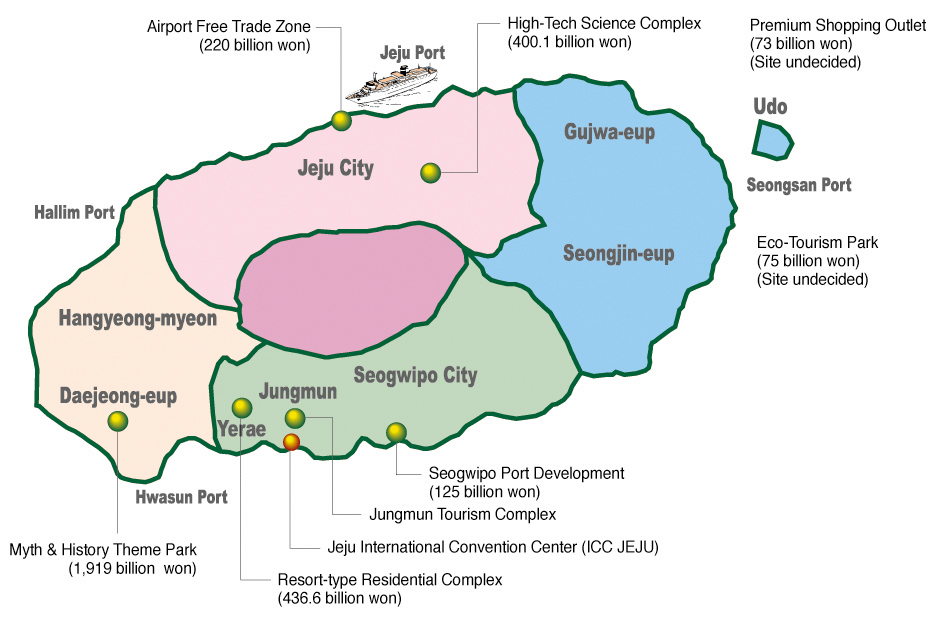 "Peace and Prosperity in Northeast Asia - Exploring the European Experience."The Jeju Peace Forum has established itself as one of representative international forums in Northeast Asia.
"Peace and Prosperity in Northeast Asia - Exploring the European Experience."The Jeju Peace Forum has established itself as one of representative international forums in Northeast Asia.
In particular, the 4th Jeju Peace Forum was composed of diverse sessions in the form of "forums in forum."This year's form included a special forum, titled "OSCE ( Organization for Security and Cooperation in Europe) in Northeast Asia"in a bid to graft EU's advanced integration in economic, security and political aspects into Northeast Asia. Capitalizing on the success story of OSCE, established to promote dialogues and cooperation between the East and the West in the Cold War, the Peace Forum aimed to agree on the "Jeju Process"designed to institutionalize multilateral cooperation regimes in Northeast Asia.
The 4th Jeju Peace Forum also held the "IT Community Forum in Northeast Asia"to reflect the reality that the "IT revolution"is spreading beyond the national boundaries. Since its inception in June 2001, large numbers of Koran and foreign prominent politicians, business leaders, academic authorities and journalists have participated in the first through fourth Jeju Peace Forums, raising the forum's international standing. They included Fidel Valdez Ramos, ex-president of the Philippines, Toshiki Kaifu, former Japanese prime minister, Evenil Primokov, ex-Russian prime minister, Berger, U.S. ex-President Clinton's national security adviser, and Teltschik, former German Chancellor Helmut Kohl's foreign policy adviser. This year's forum had heated-up discussions on such topics as North Korean nuclear issue, nuclear domino management in Northeast Asia, economic integration of Northeast Asia and FTAs.
With former and current heads of state, diplomats, academicians, business leaders and journalists'participation, the Jeju Peace Forum has contributed not only to building up human and knowledge networks, but also to expanding practical cooperation among nations of Northeast Asia. The forum has played leading roles in helping Jeju publicize its symbolic image of promoting peace and co-prosperity on the Korean Peninsula and Northeast Asia after the island declared itself as the "Island of Peace."
Question: What topics will be covered and what is the significance of the 4th Jeju Peace Forum?
A: The 4th Jeju Peace Forum was held at the Haevich Hotel & Resort on Jeju Island June 21-23 under the theme, "Peace and Prosperity in Northeast Asia - Exploring the European Experience."The Jeju Peace Forum has established itself as one of representative international forums in Northeast Asia.
In particular, the 4th Jeju Peace Forum was composed of diverse sessions in the form of "Forums in forum."This year's forum included a special forum, titled "OSCE (Organization for Security and Cooperation in Europe) in Northeast Asia"in a bid to graft EU's advanced integration in economic, security and political aspects into Northeast Asia. Capitalizing on the success story of OSCE, established to promote dialogues and cooperation between the East and the West in the Cold War, the Peace Forum aimed to agree on the "Jeju Process"designed to institutionalize multilateral cooperation regimes in Northeast Asia.
The 4th Jeju Peace Forum also held the "IT Community Forum in Northeast Asia"to reflect the reality that the "IT revolution"is spreading beyond the national boundaries. Since its inception in June 2001, large numbers of Korean and foreign prominent politicians, business leaders, academic authorities and journalists have participated in the first through fourth Jeju Peace Forums, raising the forum's international standing. They included Fidel Valdez Ramos, ex-president of the Philippines, Toshiki Kaifu, former Japanese prime minister, Evenil Primokov, ex-Russian prime minister, Berger, U.S. ex-President Clinton's national security adviser, and Teltschik, former German Chancellor Helmut Kohl's foreign policy adviser. nw
KimTae-hwan, governor of Jeju Special Self-governing Province
Seongsan Ilchulbong (Sunrise Peak)
A panoramic view near Jungmun Tourism Complex with the ICC Jeju seen in the background.
Daepo Jusangjeolli, a pillar-shaped joint
3Fl, 292-47, Shindang 6-dong, Chung-gu, Seoul, Korea 100-456
Tel : 82-2-2235-6114 / Fax : 82-2-2235-0799